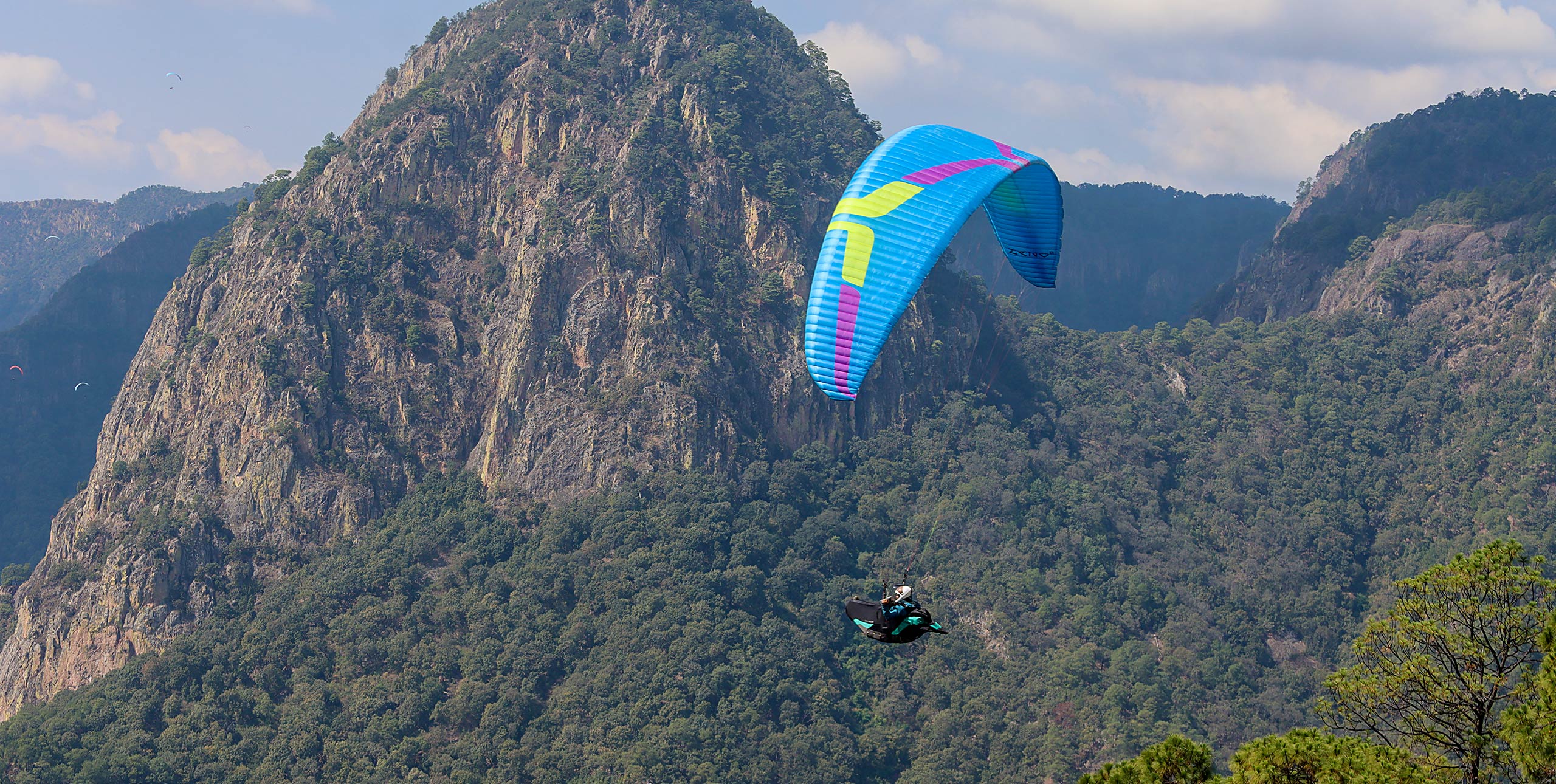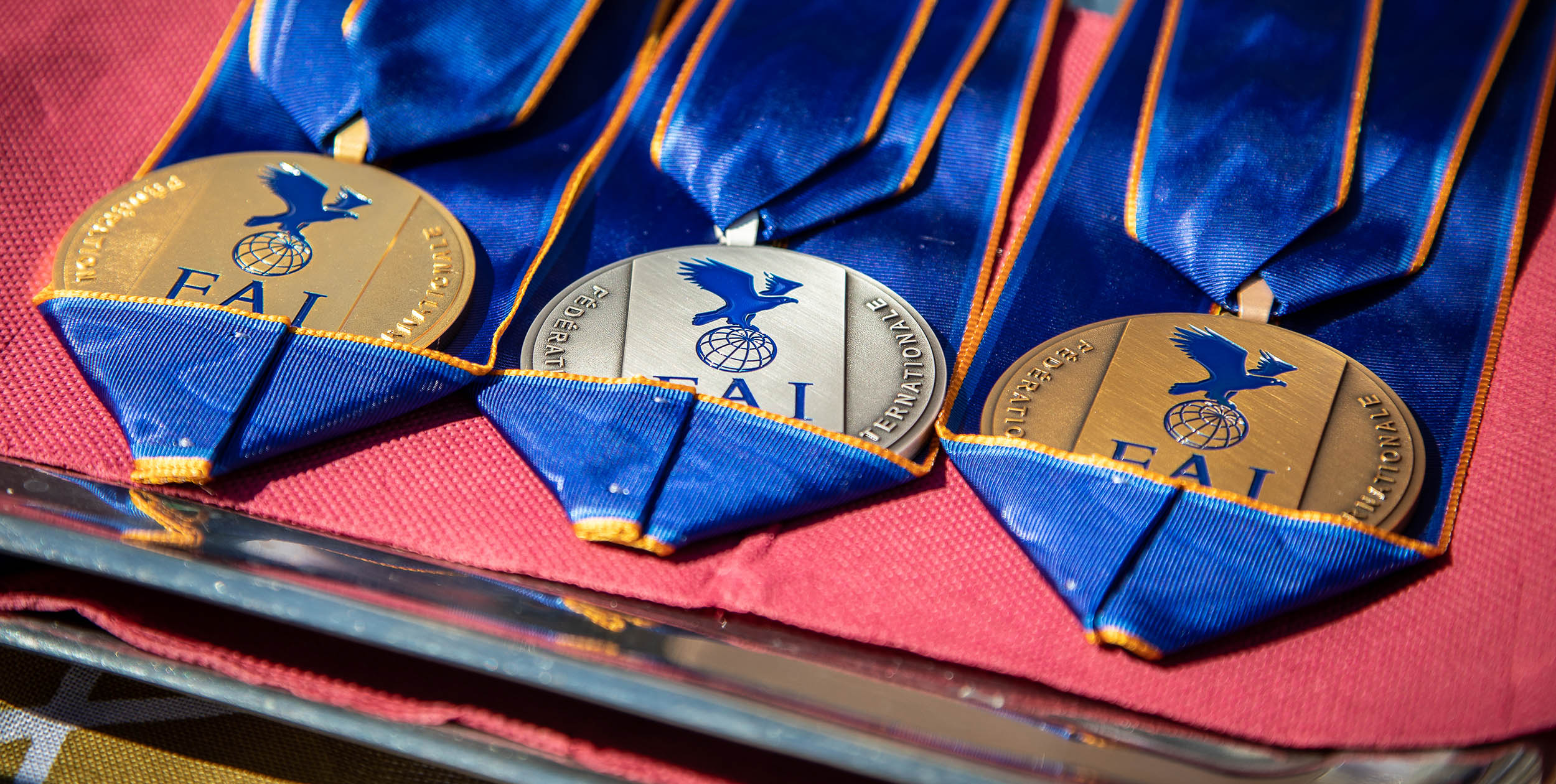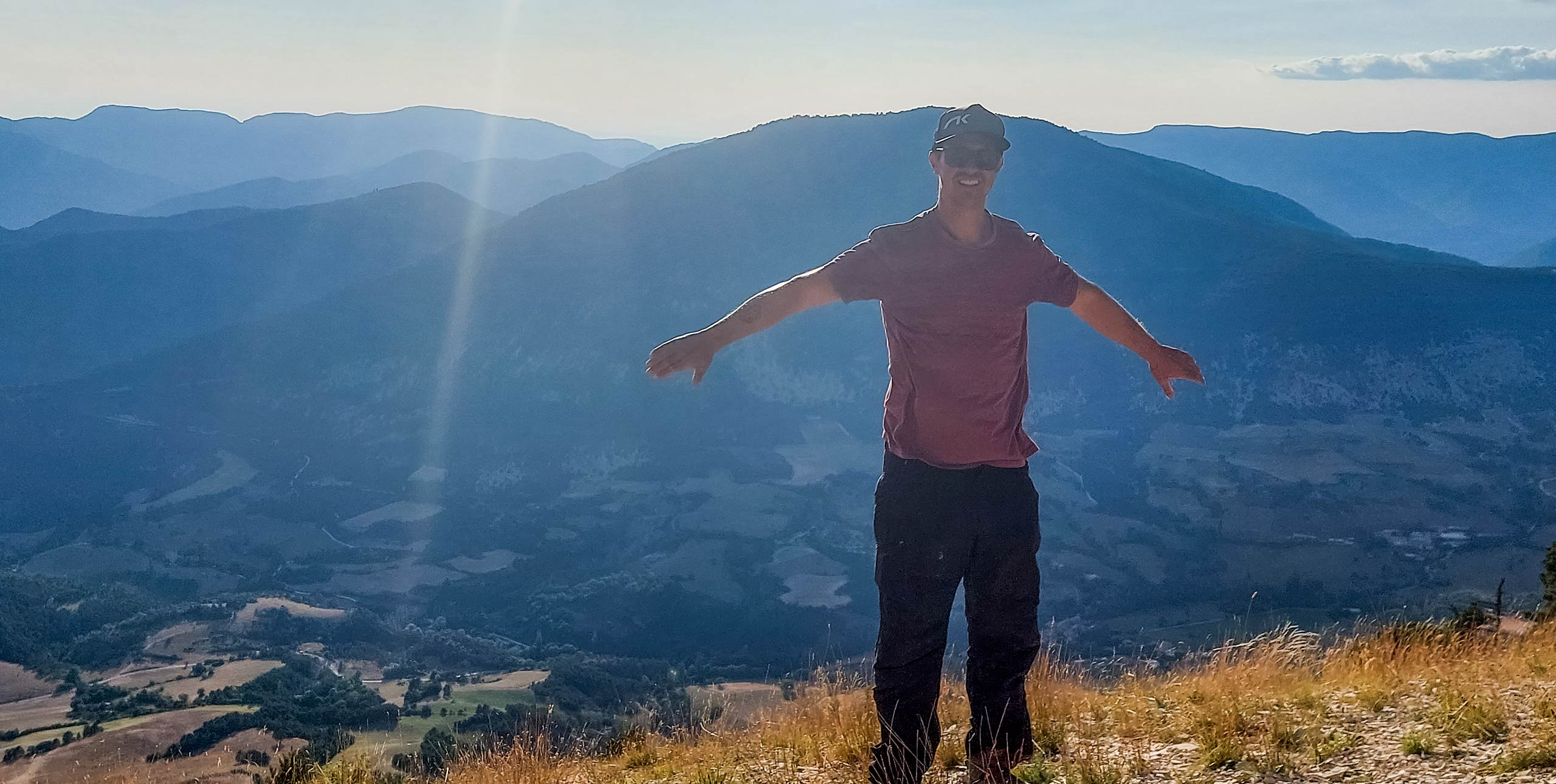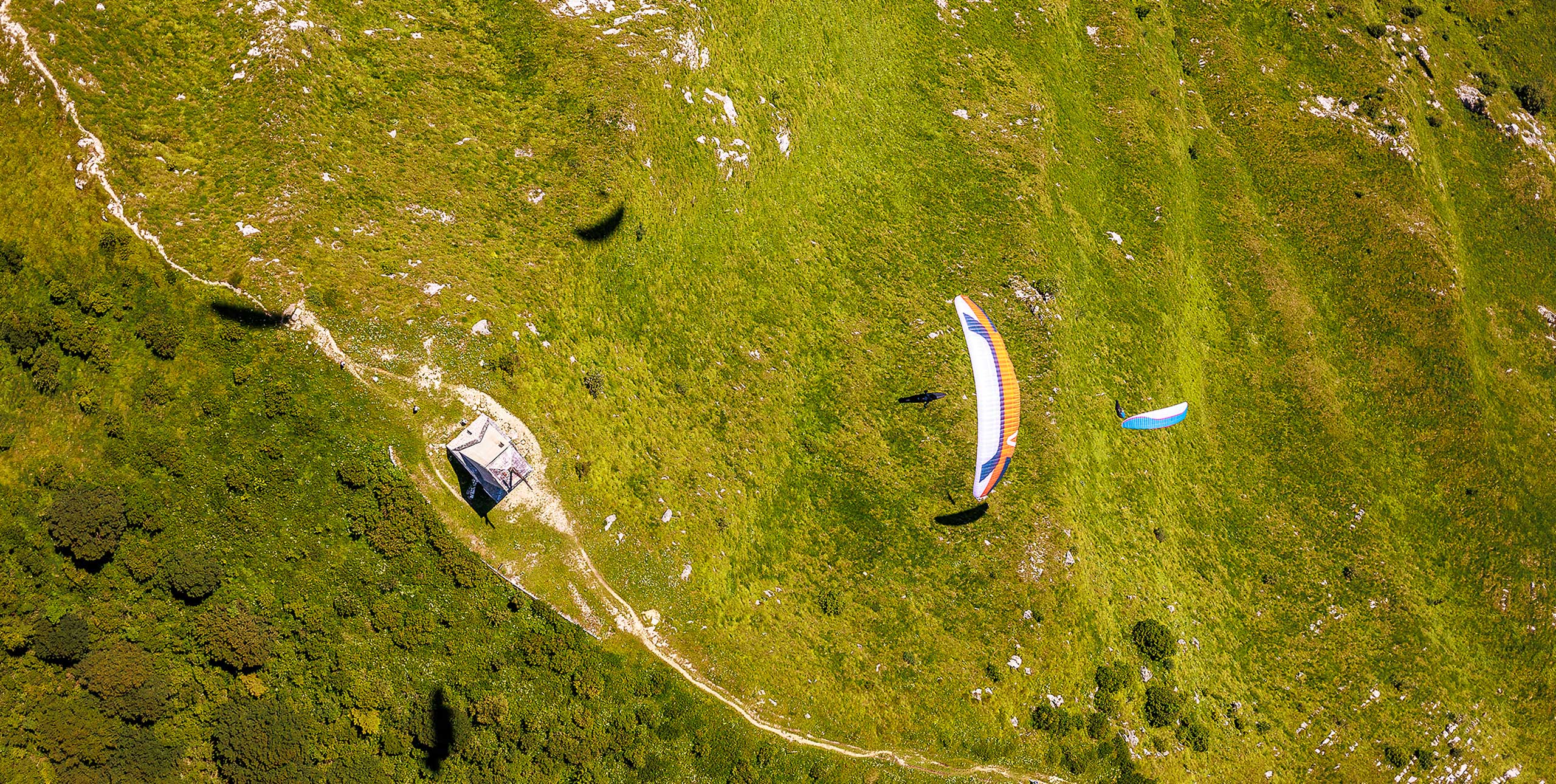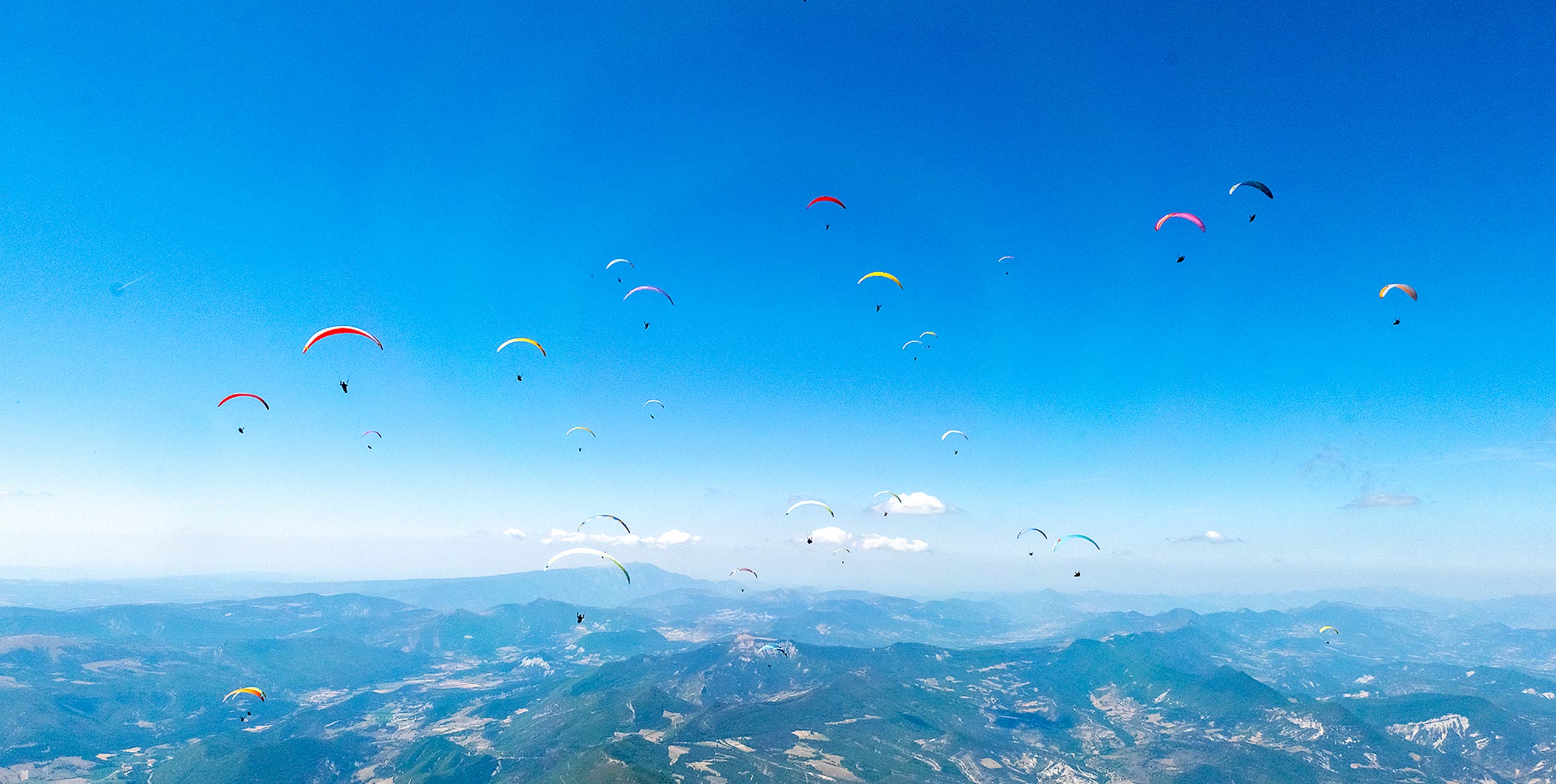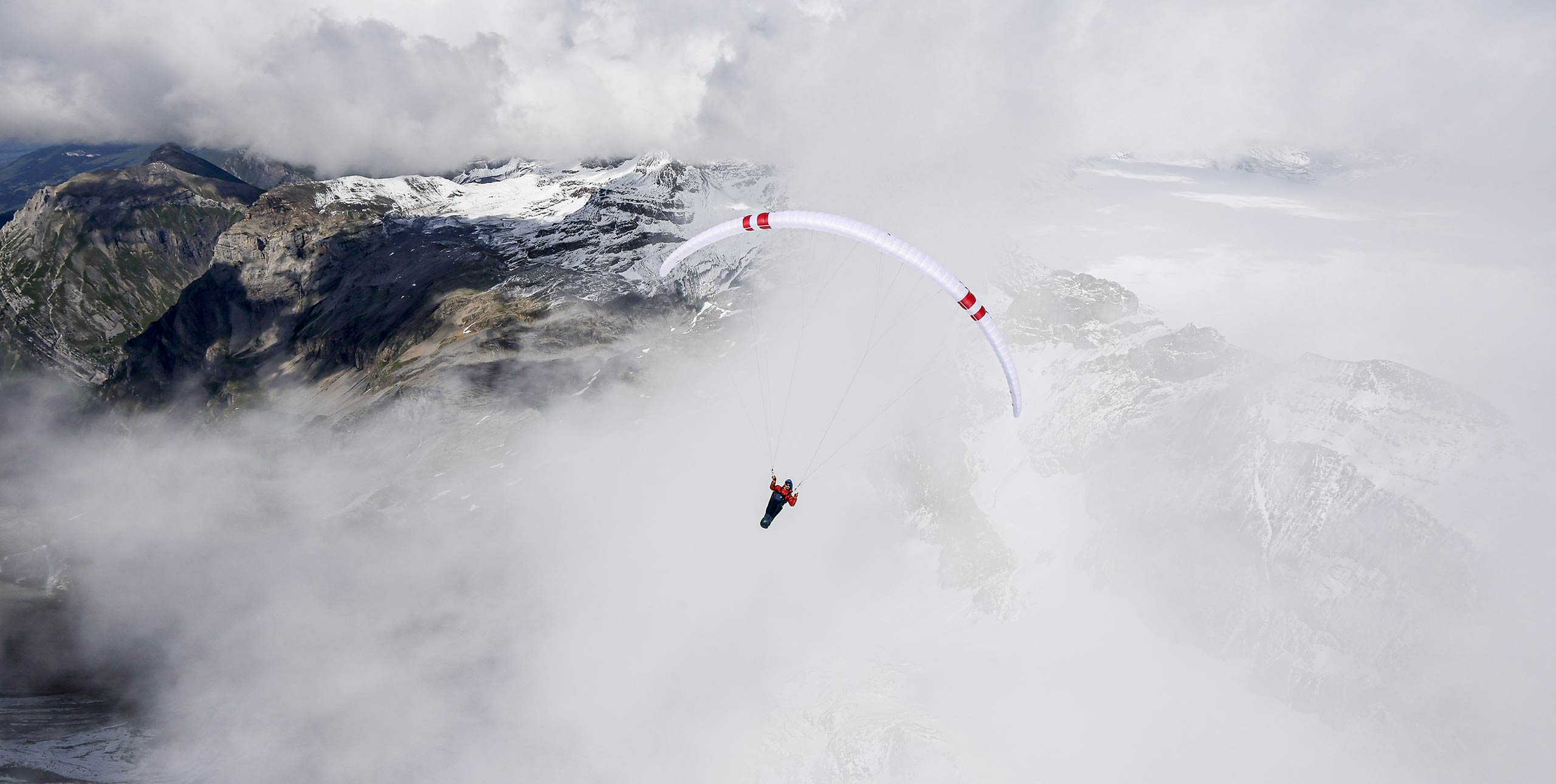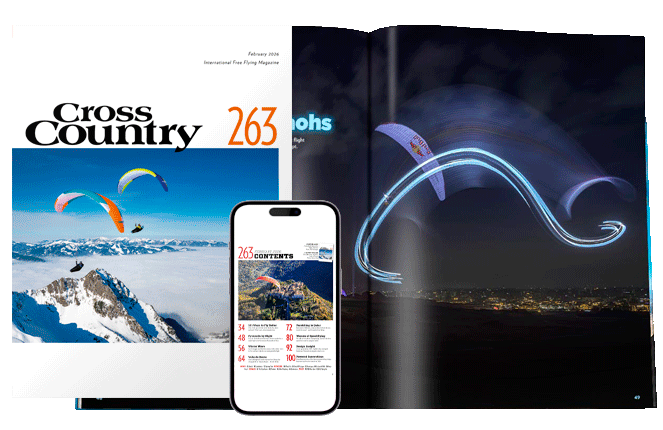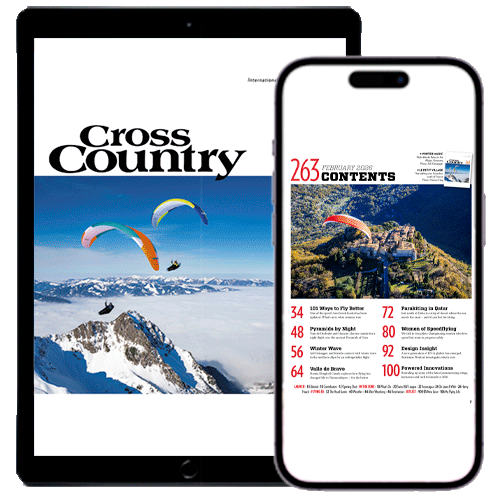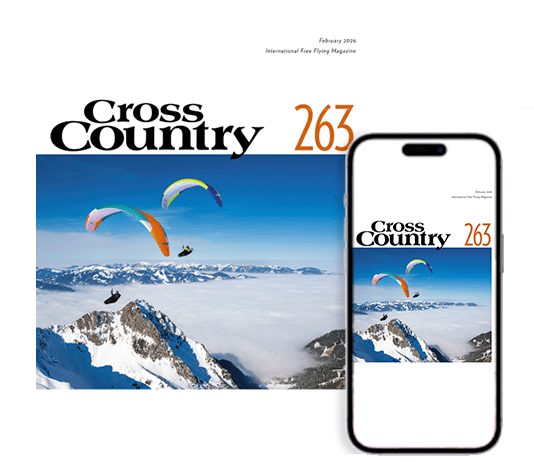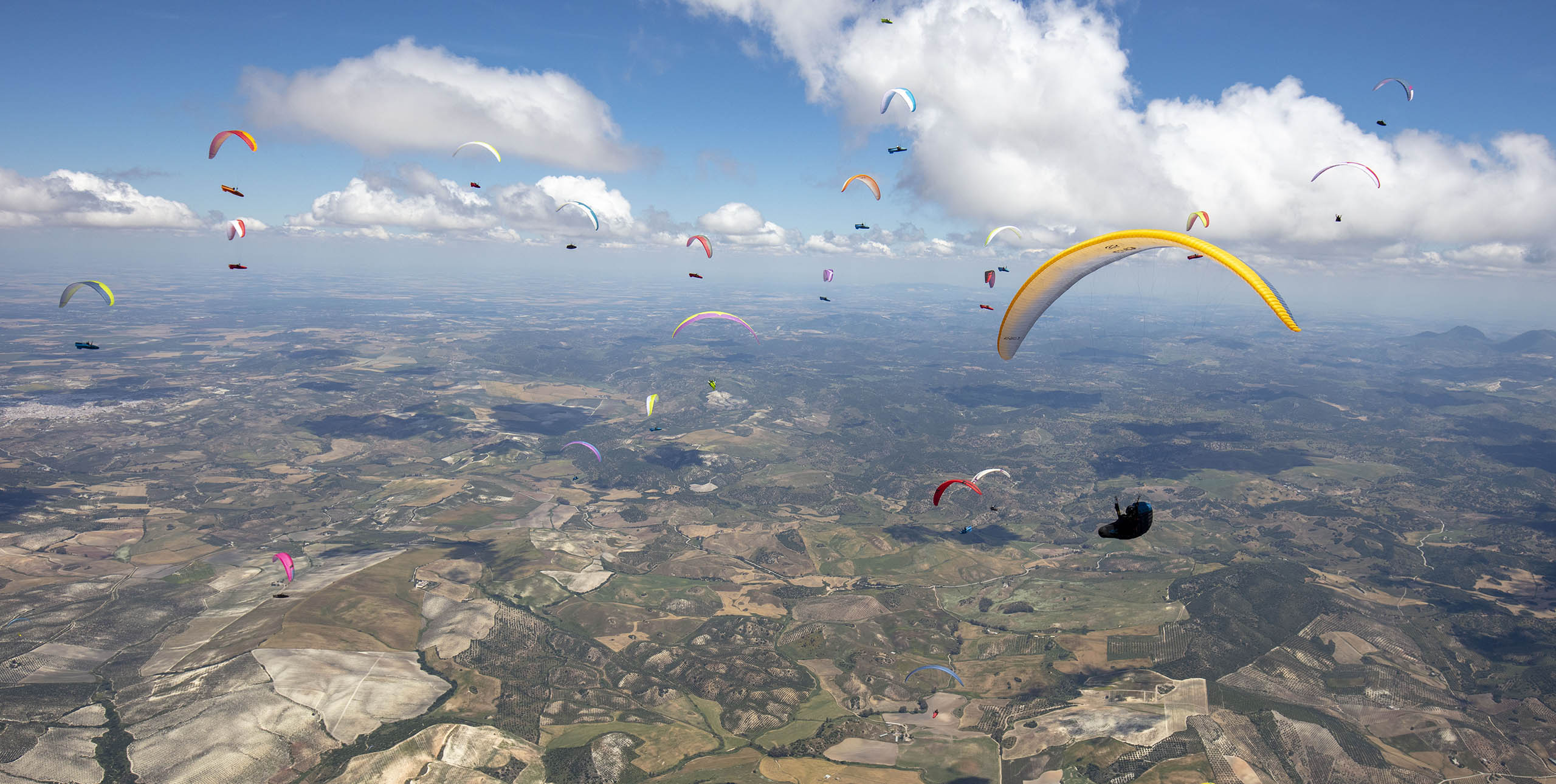
Working towards safer competition: where we’re at
Pilots give feedback as PWC, CIVL and FAI take stock
31 October, 2025, by Cross CountryMuch has happened since the pilot-led campaign to bring about change in top-level competition, following the death of Bram Declercq at the FAI Paragliding World Championships in Brazil in September. Bram’s accident, which happened on 9 September, came towards the end of a season that saw fatalities in competition in the Paragliding World Cup and also at the FAI Hang Gliding World Championships in Spain. Team France, which swept the board at the Paragliding World Championships in Brazil, led the charge to break the cycle and create change. Here’s a breakdown of the main developments since then.
PWC seek pilot feedback
The Paragliding World Cup Committee has invited pilots to give feedback and comments. In a lengthy statement issued 24 October, they say they have undertaken a period of review to analyse and evaluate safety standards within its events, which is on-going. In the statement published on its website, the committee give a frank assessment – defending their past record but also recognising that safety standards vary between events and acknowledging the need for change.
They say: ““Considering that PWCA runs a worldwide series, which features over 20 events annually, we acknowledge that the safety services provided by organisers vary globally. We will also work to create an improved minimum required standard. If such a level of service can not be met, we will not put that bid on the calendar in the first place.”
They acknowledge that in the immediate term that casts doubt over the viability of the World Cup scheduled for February in Panchgani, India, “where safety concerns are regularly raised”. They say local organisers in India have been requested to provide details on the “competition setup, safety and medical provisions, waypoints, and goals.”
They also recognise “there is room for improvement” with how pilots are tracked. “Following the successful trials and finally a full implementation, the Committee has the intention of making satellite tracking mandatory starting with the Superfinal 2025 to be held in Spain in May 2026.”
The committee has pledged to look at ballast regulations, analyse how tasks are set and how it can improve its structure. Another idea floated is to reduce the number of pilots at PWC events to 100, down from 125.
The committee is made up of 14 members of paragliding professionals, current and former competitors, organisers and administrators.
The full statement can be read here.
CIVL appoints pilot relationship officer
The FAI, the World Air Sports Federation, is the international body that oversees competition in air sports worldwide. CIVL is the international free flight commission dedicated to the competition disciplines of paragliding and hang gliding and sits within the FAI structure.
On 3 October the FAI put a pause on Category 1 paragliding and hang gliding cross country competitions to review safety in the sport. These are the biggest comps in the calendar – World, European and continental championships.
More recently, on 24 October CIVL created a new position of ‘pilot relationship officer’, appointing US competition paraglider pilot Violeta Jimenez as the first office holder. “The Pilot Relationship Officer position is being created to ensure that CIVL has a coherent, structured approach to gathering pilot input and communicating back, to ensure that polls are correctly designed to create meaningful data, and that proper analysis is done on the results,” CIVL said.
They added: “Violeta is the perfect person for this job and CIVL is grateful for her willingness to take on this critical role.”
International Free Flyer Pilots Union
Following the fatal accident at this year’s Paragliding World Championships in Brazil, French team leader Julien Garcia has led the charge calling for reform. One result is now the formation of a pilots’ union. The International Free Flyer Pilots Union (IFFPU) was set up to provide a forum for discussion among pilots and to allow pilots to speak with a unified, evidence-based voice. It was co-founded by Malin Lobb and the working group consists of Theodoros Anagnos, Tilen Ceglar, Toni Crottet, Violeta Jimenez, Antonio Lopes Morales, Martin Scheel, Pal Takats, Louis Tapper and Fabien Zadora. One topic among many that has already come under discussion is the issue of ballast.
More information can be found on gagglereport.org.
What happens next?
Competition pilots throughout the scene are being encouraged by all parties to have their say, and many will have been sent surveys to complete or asked to contribute their opinion in other ways. “Safety” is now at the top of the agenda for the organisations and leaders that are involved in cross country paragliding competition.
For the Paragliding World Cup, all eyes will be on what happens with the next event in India, scheduled for 14-21 February, with a pilot registration deadline of 14 November. For CIVL, a key date in the diary is the next annual plenary (conference), which takes place in Montenegro 6-9 March 2026. That gives all parties four months to discuss what they want and to create proposals for discussion – and then execution.


